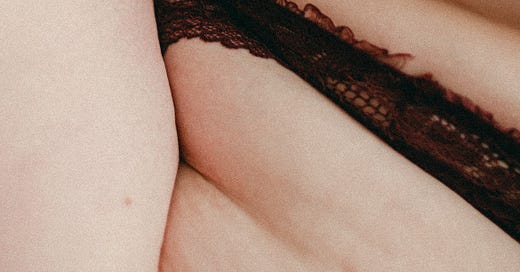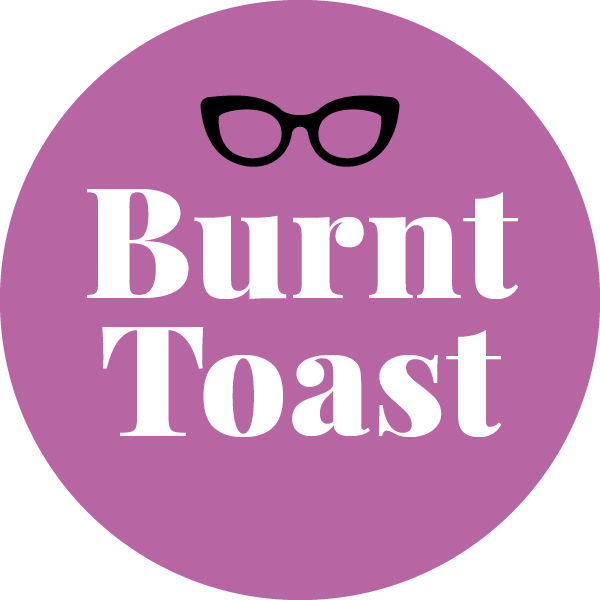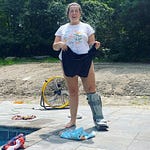
That’s Aubrey Gordon, speaking on an episode of Maintenance Phase, the podcast she co-hosts with journalist Michael Hobbes (formerly of You’re Wrong About fame).
I’ve been listening to a lot of Maintenance Phase lately. It’s an excellent podcast dedicated to diving in to and debunking a lot of pseudo-scientific mumbo jumbo on diets, “the obesity epidemic” and the “worrying” statistics relating to it.
I’ve also been listening to Burnt Toast, another podcast that falls into the anti-diet category, presented by Virginia Sole-Smith.
While Maintenance Phase is very much of the “here’s why that’s bullshit” school of thought, Burnt Toast comes at things from a slightly different angle, hosting conversations with dieticians and personal trainers and a whole host of experts who speak to myths around dieting and exercise; how to raise children with neutral feelings about food; and what happens your feelings about food when your child is diagnosed with “failure to thrive”.
Each episode I listen to gives me, if you’ll excuse the pun, food for thought. When Gordon spoke about the kind of broad strokes thin people will often paint fat people with – assuming that, when it comes to weight, life is in fact a zero sum game and we are all given the same blank slate that we can either perfect or destroy – I stopped in my tracks.
This is something that – and I feel foolish, as I write this down – I have always, deep down, thought of myself. The only difference between me and my thin friends, I’ve thought, is that they have managed to look after their bodies. They have stopped after the second slice of toast; they’ve gone for the walk they didn’t really feel like going for; they’ve drunk the prescribed two litres of water each day and stuck to their exercise-adjacent hobbies (ballet, Irish dancing, tae kwon do) while I have simply sat on the couch and watched as my body turned into something I was ashamed of.
But why? Why would we assume that our bodies – which are, even to look at, so unique to ourselves, so different from one another; which contain such variety within families, never mind within ethnic groups and demographics – are intrinsically designed to look, in terms of size and weight, the same?
As Maintenance Phase might conclude, this makes no sense.
I remember reading a segment in Glamour magazine – the UK version, years ago, which came in a delightful little pocket size and could be carried around everywhere – in which then beauty editor Alexandra Steinherr underwent a massive physical transformation, with the help of a nutritionist and a personal trainer and, if I recall correctly, a doctor who assessed her for micronutrient and vitamin deficiencies and identified all sorts of things that might be getting in the way of her becoming her “best” self.
There was no hiding the amount of effort Steinherr had to go to, in order to achieve this end goal – there were gruelling sessions with the trainer and carefully portion-controlled meals and a variety of expensive supplements and treatments that would be beyond the means of most Glamour readers – but there was, of course, a happy ending. Steinherr was thin! And happy! She had learned what it took to get there, and would never go back!
The take-home from the piece, for me, at least, was that, if we could all just get out of our own way, stop focusing on fad diets and fearing exercise, we would naturally settle at the weight we were meant to be, a weight that would, of course, have all women wearing size 10 (UK sizing) clothing, or 12 at a stretch.
Again: this makes no sense.
Why is it that we accept that bodies vary so wildly in terms of hair colour and texture; breast size and shape; bum size and shape; the width of our calves, thighs and even wrists; but we draw the line at the idea that some bodies are simply meant to be fat? (And, by that logic, some are simply meant to be thin?)
One of the difficulties in writing about fatness as something that can be natural and, oh I don’t know, not in any way dangerous or deadly or pathetic or pitiful or an indicator of sloth and greed and a lack of willpower (and so on) is that the writing almost always comes from someone with skin in the game. “Of course you’d say that,” people will respond. “You’re just trying to justify the fact that you’re fat.”
My guy! (As Gordon would say – her book, by the way, What We Don’t Talk About When We Talk About Fat, should be essential reading in schools.)
I do not need to justify the fact that I’m fat.
Read that again – and repeat after me.
I do not need to justify the fact that I’m fat.
Just as you do not need to justify the fact that you have big breasts, or a receding hairline, or soft nails, or oily nail beds… these are all natural variances in the growth of the human animal and they say nothing about the type of person you happen to be. They just are.
It would be helpful, though, I think, if some thin people would start to think about these issues. We are, after all, your friends and your family members and your work colleagues. Our bodies are not the same and we didn’t fuck ours up; you just got “lucky”, in the sense that yes, it is lucky to have the body type that is acceptable for the society in which you live.
It is lucky to be able to buy clothes in your size. It is lucky to be able to fit into seats in the theatre, or on a plane, or at a public talk by an author you like. It is lucky to be able to make an appointment with your doctor and have your concerns listened to without your doctor simply telling you, “You should think about losing weight.”
It is lucky not to have to think about losing weight every second of every day (whether you want to or not).
It would be nice if thin people would start to think about the kind of lucky they are, and the kind of unlucky fat people are, and perhaps start to care about narrowing the gap between the lucky and the unlucky among us.
Start by listening to Maintenance Phase and Burnt Toast.
This week I…
…watched approximately 15 minutes of the new Kardashians series. My first attempt was disrupted by the screaming angel child. My second attempt saw the TV cruelly switched off by my husband. (In his defence, I had said, “You can turn it off if you like”, but the fact that he thought I was serious is, frankly, worrying.) The third attempt was interrupted, yet again, by angelic screaming. I enjoyed the intro. Kim is fully morphing into AI. Khloe looks like… an entirely different person. (Why is Scott still in it?!)
…donated seven litres of breast milk to a woman whose child cannot take formula. I tried to donate to The Milk Bank here in the US, but anyone who lived in Ireland between the years of (I think) 1985 and 2000 is on the banned list due to CJD. I explained this to my would-be donor and she said she would gladly accept the fruits of my labour, so I happily met her in a car park where I offloaded a cooler bag full of milk, like a weird, hippy drug deal.
…wrote more than 10,000 words of my book, which is finally – finally – in the home stretch. I have given my publishers a date of mid-May for submission of the manuscript and I am hoping never to have to think about those men ever again (except for, hopefully, when I do a series of readings on my worldwide book tour due to its mega success).
…put four potatoes’ worth of peel into the garbage disposal and blocked the sink. Every day is a school day.

















Share this post